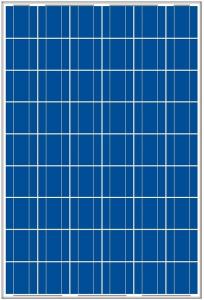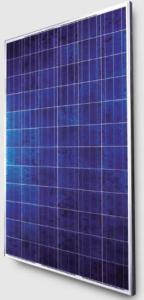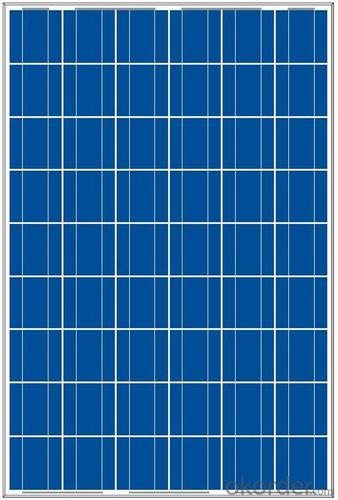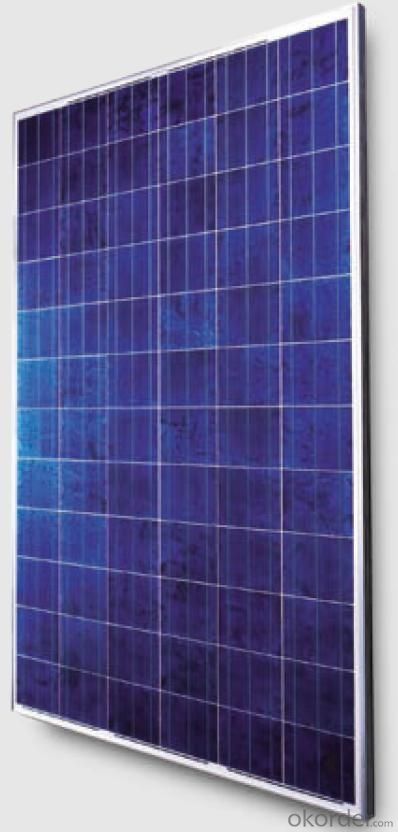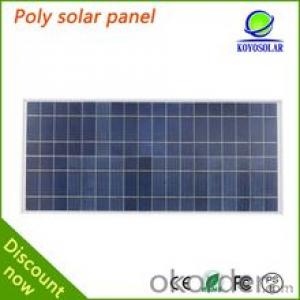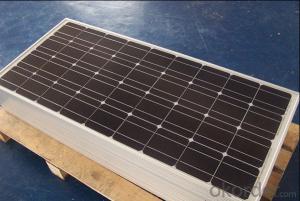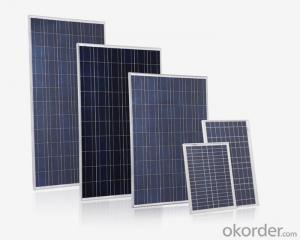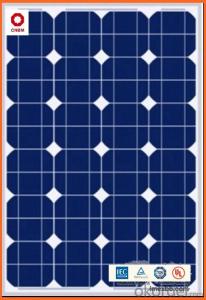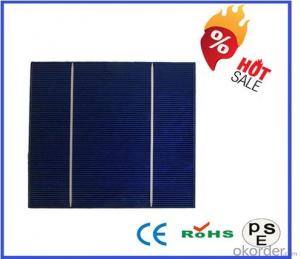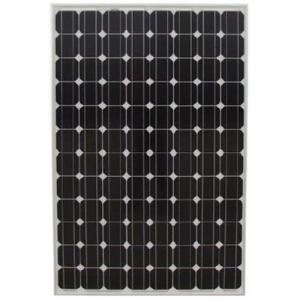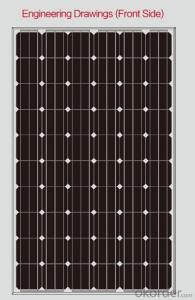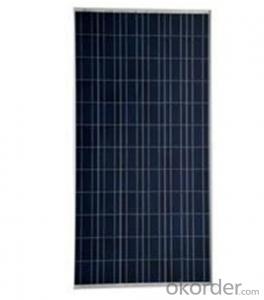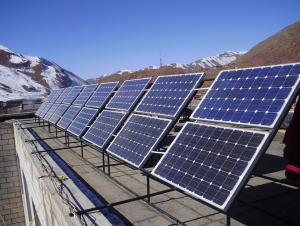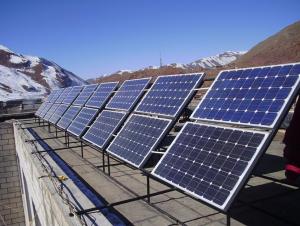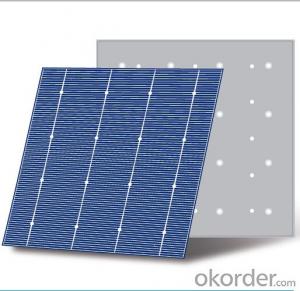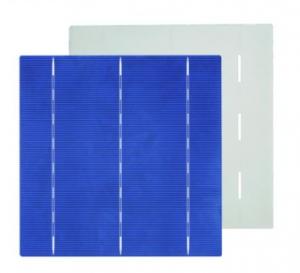High Efficiency TUV Rv Solar Cells Crystalline Silicon Solar Module
- Loading Port:
- China Main Port
- Payment Terms:
- TT or LC
- Min Order Qty:
- -
- Supply Capability:
- -
OKorder Service Pledge
OKorder Financial Service
You Might Also Like
Quick Details
| Quick Details | |||||
| Max. Power: | 1W to 300W | Surface Glass: | Tempered Glass | Model Number: | DBF, MBF |
| Frame: | Firm Aluminum | Warranty: | 25 years | Number of Cells: | 36 or 72 PCS |
| Packaging & Delivery | Glue: | EVA | Delivery Detail: | 15 days | |
| Packaging Detail: | Carton/Wooden Case/Pallet | Certificate: | TUV, CE | ||
Specifications
Mono and Poly Solar Module
1. CE, TUV, ISO
2. High efficiency and good warranty
3. Customized type 1W to 300W
4. OEM Service
We are professional manufacturer with ISO9001:2000 certificate for kinds of solar panels in China. Our main products include Crystalline Silicon solar panels, Amorphous Thin Film Silicon Solar panels, and BIPV products. Since 2001, we have been being in the sector of solar panels for 10 years. Our products are with high quality and at competitve price.
Our Advantages:
1) 10 years experience of solar module encapsulation.
2) 31MW solar module have been used in Chinese major grid-connected projects.
3) Be among the first Chinese enterprises to enter the Germany grid-connected market.
4) To build up a 1GW module encapsulation & integration capacity in 2015.
5) Own 45 patents and 3 module production bases in different cities.
We offer Polycrystalline Silicon and Monocrystalline Silicon Solar Module from 1W to 300W. Please feel free to advise us the size and specification you need.
Here is some information of our Crystalline Silicon Solar Panels for your reference.
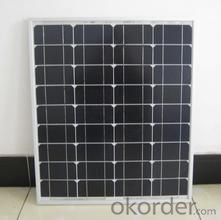
FAQ
We have organized several common questions for our clients,may help you sincerely:
①what price for each watt?
it depends on the quantity, delivery date and payment terms,
②what is your size for each module? can you tell me the parameter of your module?
we have different series of panels in different output, both c-si and a-si. please take the specification sheet for your reference.
③Can you provide the peripheral products of the solar panels, such as the battery, controller, and inverter? If so, can you tell me how do they match each other?
Yes, we can, we have two companies for solar region, one is CNBM International, the other is CNBM engineering Co.
We can provide you not only the solar module but also Solar Cells, the off grid solar system, we can also provide you service with on grid plant.
④What is your warranty system?
Our product performance guarantees for 25 years
• 12 years guarantee for workmanship
• Timeliness of delivery
• Quality Products certified (TÜV, UL, CE, ISO)
⑤How do you pack your products?
We have rich experience on how to pack the panels to make sure the safety on shipment when it arrives at the destination.
⑥ Can you do OEM for us?
Yes, we can.
⑦How long can we receive the product after purchase?
In the purchase of product within three working days, We will arrange the factory delivery as soon as possible. The pecific time of receiving is related to the state and position of customers. Commonly 7 to 10 working days can be served.
- Q: Can solar cells be used for outdoor lighting?
- Yes, solar cells can definitely be used for outdoor lighting. Solar-powered outdoor lighting systems are a popular and eco-friendly alternative to traditional electric lighting. They harness sunlight during the day to charge their batteries, which then powers the lights during the night. This allows for sustainable and cost-effective illumination for various outdoor applications such as gardens, pathways, and street lighting.
- Q: How do solar cells compare to fossil fuel-based power generation?
- Solar cells are a more sustainable and environmentally friendly option compared to fossil fuel-based power generation. Solar cells harness energy from the sun, a renewable source, while fossil fuel-based power relies on finite resources like coal, oil, and natural gas. Solar cells produce clean energy with no greenhouse gas emissions, helping to combat climate change, whereas fossil fuel-based power generation releases harmful pollutants and contributes to air and water pollution. Additionally, solar cells require less maintenance and have a longer lifespan than fossil fuel power plants, making them a more cost-effective and efficient choice in the long run.
- Q: What do the solar cell suppliers provide once we purchase the order from the solar cells from them.
- There is a technical term called turnkey project, which is somehow the solar cell suppliers will provide more than selling the solar cells to you.
- Q: What are the 3 things you need to know before you start to make solar cells?
- I think there is an easy way to follow even though the commercial solar cells use silicon as the semiconductor.
- Q: Where can I get a competitive price for this solar cell? The 2bb/3bb polycrystalline solar cell panel?
- You can try this website, alibaba to find what you need, because I purchased the 2bb/3bb polycrystalline solar cell panel on that website last year.
- Q: What is the difference between solar cells and solar panels?
- Solar cells and solar panels are closely related but have some key differences. A solar cell refers to a single unit that converts sunlight into electricity through the photovoltaic effect. It is the basic building block of a solar panel. On the other hand, a solar panel, also known as a photovoltaic module, is made up of multiple interconnected solar cells. The purpose of a solar panel is to harness a larger amount of sunlight and generate a higher output of electricity. In summary, while a solar cell is the individual component that directly converts sunlight into electricity, a solar panel is a collection of interconnected solar cells that work together to produce a higher power output.
- Q: How do solar cells perform in areas with high levels of light pollution?
- Solar cells do not perform as efficiently in areas with high levels of light pollution. The excessive artificial light can interfere with the ability of solar cells to absorb and convert sunlight into electricity. This results in reduced power output and lower overall performance of the solar cells.
- Q: How can solar cells be used in residential applications?
- Solar cells can be used in residential applications by installing solar panels on rooftops or other open areas to capture sunlight and convert it into electricity. This clean and renewable energy source can power various appliances and lighting systems within a home, reducing reliance on traditional grid electricity and lowering utility bills. Additionally, excess energy generated by solar cells can be stored in batteries or fed back into the grid, further promoting sustainability and potentially earning homeowners credits or incentives.
- Q: What is the impact of leaf litter on solar cell performance?
- Leaf litter can have a negative impact on solar cell performance as it can block sunlight from reaching the surface of the cells, reducing their efficiency and overall power output. Additionally, the buildup of leaf litter can also lead to overheating and potential damage to the solar panels. Regular cleaning and maintenance of solar panels are crucial to ensure optimal performance and maximize energy generation.
- Q: Why should the solar cells be laserized?
- Extended reading: Through the practice of testing and manufacturers, Tuopu photoelectric laser etching technology summary, the results of the current solar photovoltaic industry using laser etching scribing technology P1 level using narrow pulse infrared nano-laser is the most ideal,
Send your message to us
High Efficiency TUV Rv Solar Cells Crystalline Silicon Solar Module
- Loading Port:
- China Main Port
- Payment Terms:
- TT or LC
- Min Order Qty:
- -
- Supply Capability:
- -
OKorder Service Pledge
OKorder Financial Service
Similar products
Hot products
Hot Searches
Related keywords
